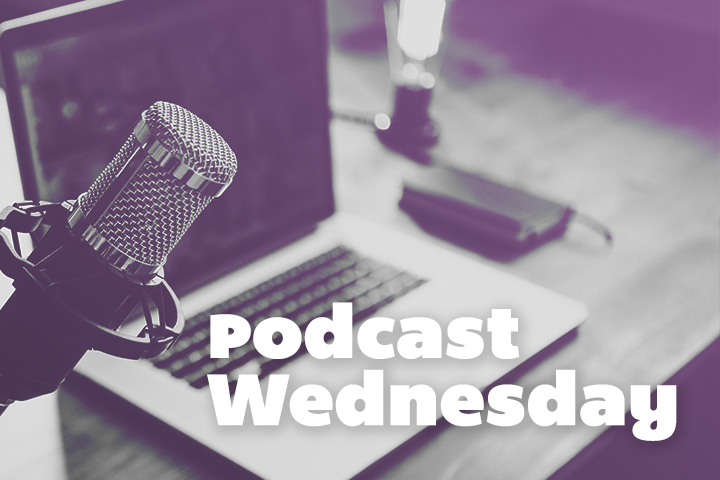Hello Everyone,
Don’t know about you, but this week has felt like the longest one yet. I hear about fatigue setting in everywhere… fatigue from sitting in the chair looking at a screen in unsatisfying attempts to connect, fatigue with too much connection (entire family all home) or too little connection (living alone), fatigue at the incessant rancor and disappointing “leadership” from Washington. We want relief and it’s starting to feel extreme.
Podcasts aren’t the answer — but sure am glad we have them. I feel a little more sane hearing some deep, interesting, knowledge- and/or heart-expanding conversation among people I admire and learn from.
I knew I wanted to highlight Russell Brand’s podcast, Under the Skin, for you and planned to link his great interview with Brené Brown here. (Episode #85, Vulnerability & Power (with Brené Brown).)
And there’s a really enjoyable youtube video of the whole interview, check it out.
Instead of just linking the Brené interview and calling it a day, though, I hit “play” on his most recent podcast and next thing I knew, it was an hour and 12 min later:
Episode #122: Wim Hof’s Corona Survival Guide.
Wim Hof, aka The Iceman, if you don’t know (I didn’t) is a Dutch extreme athlete known for his cold tolerance, breath holding, under ice swimming, barefoot in the snow marathon running, global perspective…and the Wim Hof method, based on cold therapy and breathing technique.
(But first — who’s Russell Brand? Brand emerged from stand up comedy, movies (personal favorite: Get Him To The Greek), and what he calls his own obsessive narcissism and debauchery, outrageous public antics and destructive drug use — as well as his short lived marriage to pop star Katy Perry — to become a serious and challenging voice in the world of activism, recovery, spirituality and Big Ideas.
In addition to the podcast, Brand hosts The Trews, a political YouTube show, leads virtual recovery (12-step) courses, authors books and has a Netflix special currently streaming. Brand says he wants to hear from “voices of solution, voices of heart” to discuss: given the extent to which our culture(s) seem to be frozen in the problems, in polarity — what are the solutions? He’s very funny — and an extremely thought-provoking, deep thinking and imaginative interviewer.)
Back to Wim Hof. In this episode, he and Brand about medical trials underway (but now on pause due to the virus) that demonstrate the medical efficacy in Hof’s cold therapy and breathing techniques — in particular reducing the inflammation that left untreated, causes deregulation of the innate immune system which allows damage to the lung tissue. It’s very interesting stuff.
But what really stands out in the episode is Brand’s connecting Hof”s ideas about health, commercialism — and the personal empowerment available to all humans if given the tools and information they need — to our current pandemic situation. Brand reacts to Hof’s assertion that his technique is an evidence based treatment modality appropriate for human immunity to this (or the next) pandemic: “That’s the kind of bravado we need in a world pandemic!”
Hof answers Brand’s question about his perspective on the coronavirus pandemic like this (English is a second language for him, so I summarized a couple of these sentences):
Humanity needs to stop. Humanity needs to stop to sodomize the planet, to pollute the planet, and to have insensitivity between people. And mother nature is showing us now – if we are not going to listen then she will come back and back and back and back. It should stop this voraciousness, this money system, which is unequal dividing energy all over the world. People are suffering, mostly; only one percent of the world is controlling and possessing more than half of the world. My philosophy, belief, is we can have happiness strength and health, guaranteed, through science. That is the future, that is going to be the future and the walls are going to be broken.
Hof and Brand discuss the connection between pharmaceutical companies and health care systems based in profit vs. the kind of empowering self-healing that Hof has discovered. The discuss why they believe his medical trials are not more widespread. And most interesting to me, Hof describes the origins of his discoveries, rooted in a suicide close to him and his own struggle with his moods in the past. He asks us to consider: “What is happiness? How do you stay happy? How do you control your mood? How do you control your health and how do you control you energy?”
He asks — Would you trade happiness, strength and health for more money and things? Are you able to see clearly how motivated you are, given your cultural training, to make that exact trade which is so destructive to you? How clearly do you see the ways in which our system set up to make us want to expand and take and grow vs. going inward and discovering the true roots of mental and physical health?
He’s got interesting answers, and it’s super intriguing to hear Brand talk about his own experiences with cold therapy and breath work, in the context of his own personal and remarkable transformation.
I hope both of these Under The Skin podcasts are interesting and helpful to you as we travel on this pandemic journey.
Be well, wash your hands, and stay connected —
Lisa




